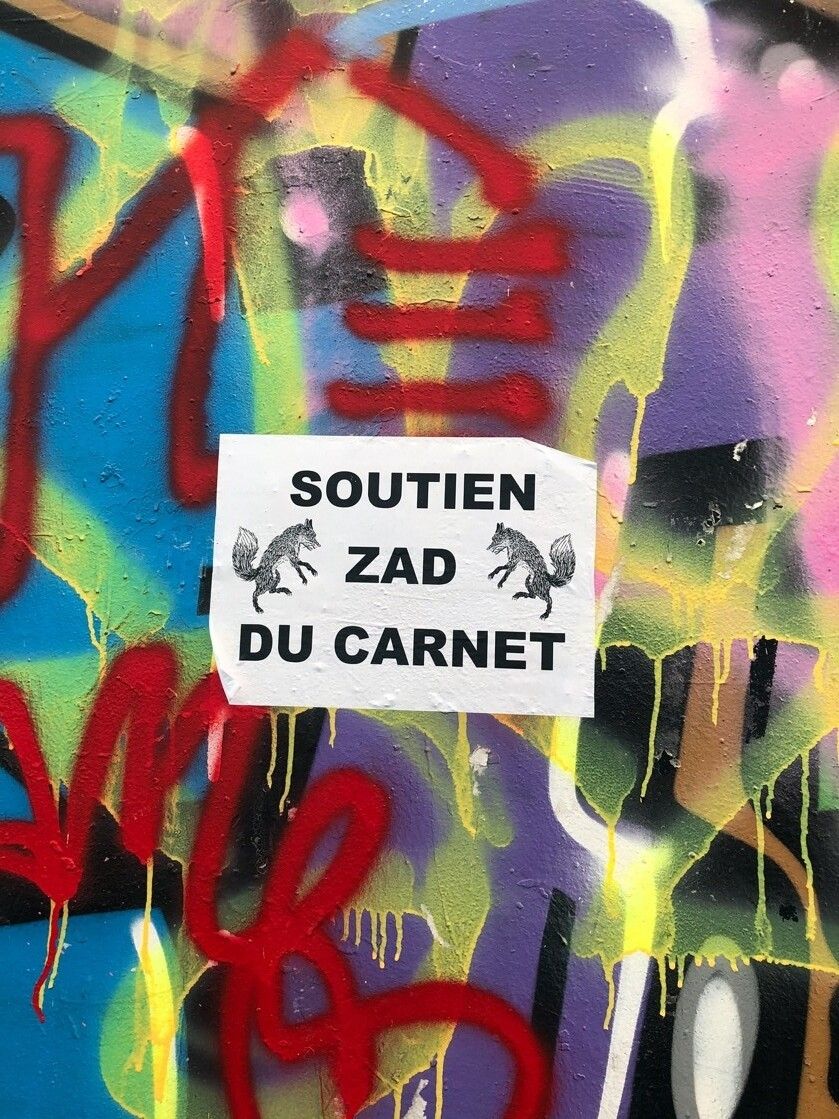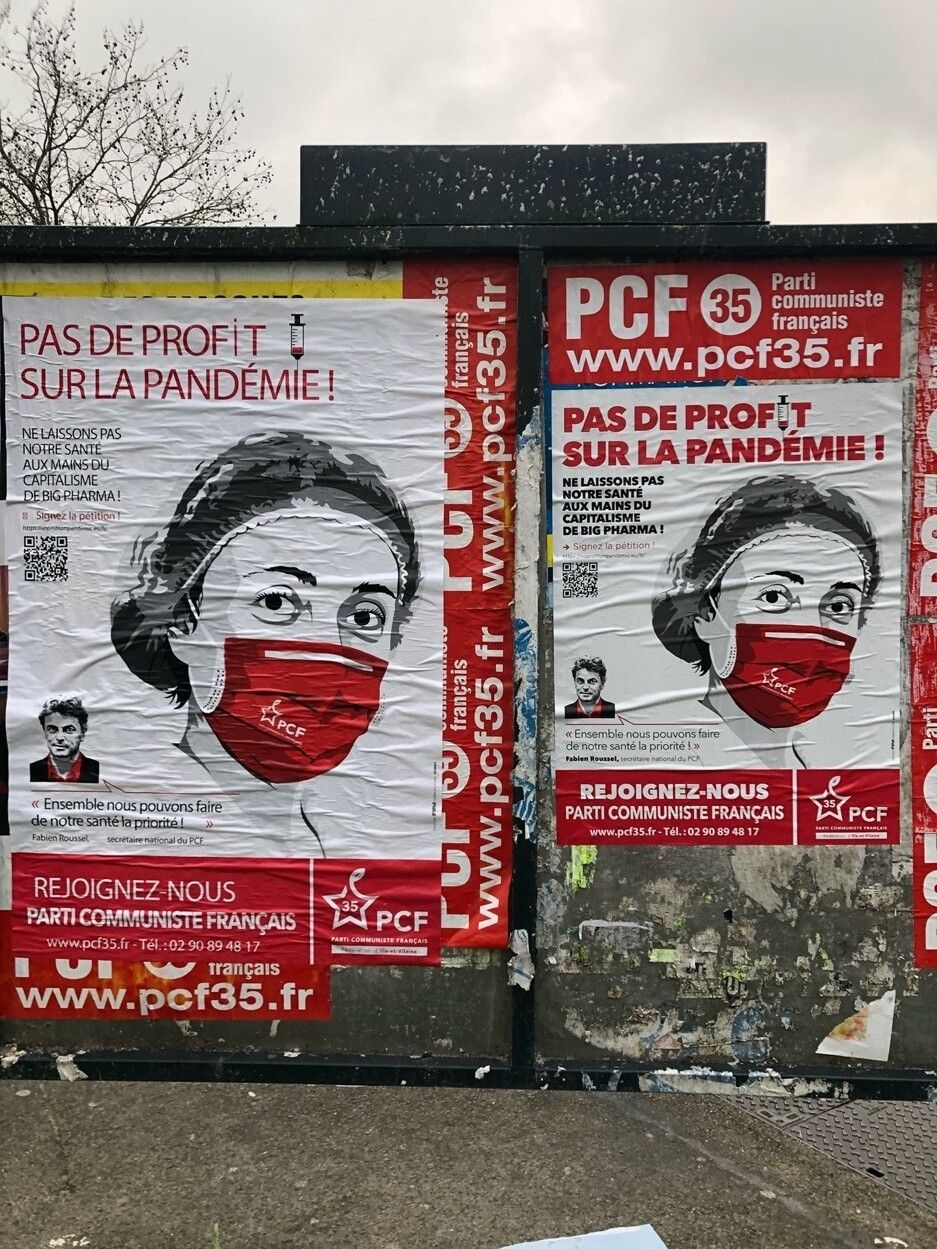Protests : A Big Part of French Culture
I had always heard that strikes and protests were a big part of French culture, but that was especially apparent to me when I arrived in Rennes. Naturally, I had signed up for travel alerts that would notify me of any important news happening in Rennes and France as a whole. I was a little surprised when my first notification arrived before my first weekend in France had even started. The email said that there would be a protest in downtown Rennes on Saturday afternoon.
I knew that protests were very common in France, so I wasn’t concerned. I was a little surprised that one was taking place so soon, though. That Saturday afternoon, I happened to be downtown. I was near the protest, but since I was aware of the area where it was happening, I avoided it. It was my first weekend in Rennes, so I was excited to walk through the cobblestone streets, walk into shops, and see everything I could. I remember looking up at the tops of the old buildings near St. Anne and turning a corner. I looked ahead, and to my surprise, I saw two lines of armed soldiers! I was taken aback—I looked at the people around me, and they were acting like nothing was happening. So, I did the same, and just walked past. I thought about it for a minute, confused, before realizing that the soldiers were likely just there as part of heightened security as a part of the protest.
The next weekend, I got another traveler alert notification. I looked at the email—another protest! I realized then that protests really are common. In some weeks, I get two or three notifications about protests or strikes.
During my third week in France, I was at Republique. I had just eaten lunch with another student from the program, and we were walking back to the bus stop. Suddenly, in front of us, we saw a big group of people walking down the streets, carrying signs, and playing music. It was a protest! I was actually excited to be witnessing this quintessential French experience.
A protest culture like the one in France definitely doesn’t exist in the US. Of course, there are protests back home. There was a protest at my college last semester, and I actually participated in it. But that was an anomaly. In France right now, it’s a little surprising to see that protests are still happening. France has imposed very restrictive rules regarding covid and gatherings of people. Yet protests seem to be able to skirt these rules. To me, that shows just how important protests are to the French people—they’re one of the few things that hasn’t been canceled. Seeing so many protests happen, I had to wonder… do these protests really work? And from the little research I did on the topic, the answer seems to be yes. In my French Society 2 class at CIREFE, we learned about this history of the French government. Until recently, I was completely unaware of just how much change the government and state structure of France has undergone in the past 200 years. Compared with the history of the US, France was generally much less stable, and there were far more revolutions. Perhaps, the French revolutionary spirit of centuries and decades past has carried over into modern society such that protests have simply taken the place of the revolutions. I saw a Tiktok that said, jokingly, “the protests in France are just the daily revolutions.” And they may have been onto something.
Since realizing just how important protests and strikes are in French culture, I have been taking pictures of protest signs whenever I notice them. I feel like the subjects of protests provide a lot of insight into the culture as well as current events. Below, I have included a few of my favorites.

I saw this poster on the campus of University of Rennes 2. It is telling nationalists, fascists, racists, and sexists to “get out of our lives”.

This poster, found on a bus stop near University of Rennes 2, had several posters accompanying it that are not included in the picture. Essentially, they were protesting the expansion of an industrial zone into a zone that had been reserved for nature.

These are posters from the Community Party of France. These posters are criticizing the fact that some corporations have made profits off the pandemic. The posters say, “No profitting off of the pandemic!”
Trinity Chapman, Wofford College
Related Posts

At Home In France
When I came to Rennes for my study abroad, I thought my biggest lessons would come from my university classes—grammar, vocabulary, literature, all that. But honestly, some of the most... keep reading

Volunteering in Rennes
“You better hurry up, or we are going to get a timer.” A word to the wise: if you are wanting to volunteer at a retirement home in France, make... keep reading

Rugby in Rennes: Playing a Sport Abroad
As I was considering applying for my study abroad program in Rennes, one of my biggest concerns was whether I would fall behind in my sport while I was away... keep reading
